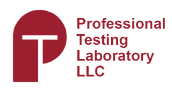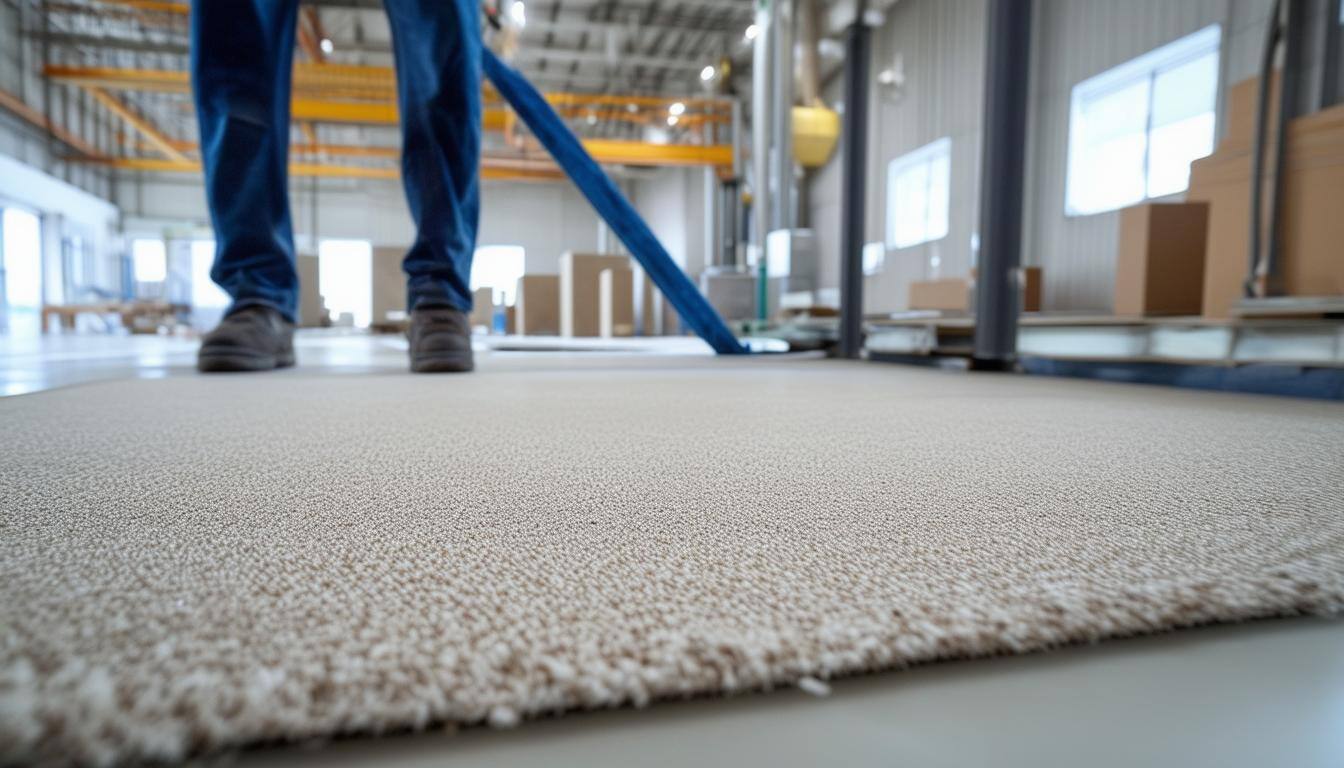The Professional Testing Laboratory Guide to ASTM Testing Standards

In industries from flooring to aerospace, ASTM testing standards are vital to ensuring product quality, compliance, and reliability. As an accredited laboratory, Professional Testing Laboratory (PTL) specializes in conducting tests according to ASTM standards, providing independent validation for product performance across a wide range of materials.
Understanding ASTM standards is key to ensuring your products meet industry-specific requirements and certifications. Discover the role played by ASTM standards in diverse industries, the steps you can take to ensure product compliance, and how partnering with an accredited lab like Professional Testing Laboratory (PTL) can simplify the process.
What are ASTM Standards?
ASTM standards, developed by ASTM International, are voluntary technical standards designed to ensure the quality, safety, and performance of products, materials, and systems across a wide range of industries. These internationally recognized benchmarks serve as essential guidelines that companies rely on to ensure that their products meet the requirements for durability, safety, quality, and market acceptance.
Originally known as the American Society for Testing and Materials, ASTM was founded in the late 1800s to address the rail industry’s need for improved standards for steel production. Since then, ASTM has expanded to include over 12,000 different standards in industries such as flooring, textiles, automotive, aerospace, and consumer products.
Manufacturers that follow ASTM guidelines give consumers the added confidence that the products they’re buying are safe, consistent, and built to meet stringent performance benchmarks. ASTM standards cover everything from mechanical properties to fire resistance and are used across industries like construction, automotive, flooring, and textiles.
For example:
- Durability Standards — Flooring products tested under ASTM F3261 must meet specific criteria for durability, structural integrity, and surface wear. This standard specifically evaluates rigid core flooring, such as ceramic tiles and polymer-based planks, ensuring they can withstand everyday use in residential and commercial settings.
- Tensile Strength Standards — ASTM standards also apply to elastomeric materials, which are used extensively in automotive and flooring applications. ASTM D412 tensile tests measure the elongation and breaking strength of rubber materials. These metrics provide critical information about how well a material can endure tension and pressure over time, making this test indispensable for ensuring product quality.
These are just a few of the many areas covered by independent ASTM testing standards and voluntarily observed by manufacturers. By following ASTM guidelines, companies can assure consumers and stakeholders that their products have been independently evaluated to meet high-quality performance standards, fostering confidence and trust in the marketplace.
ASTM vs. ISO vs. ANSI: Comparing Major Test Standards
When it comes to international standards, manufacturers must understand the differences between ASTM, ISO, and ANSI, as each plays a unique role in the regulation of materials and products. These organizations establish voluntary performance metrics for everything from fire resistance to tensile strength and can overlap in certain areas.
- ASTM (American Society for Testing and Materials): ASTM focuses on the development of consensus-based standards for materials, products, systems, and services. It is widely recognized for its contributions to industries like construction, flooring, and aerospace, providing technical standards like ASTM E119 for fire resistance and ASTM E84 for surface burning behavior. These standards play a vital role in ensuring product safety and durability.
- ISO (International Organization for Standardization): ISO focuses on global standards that ensure product safety and quality across borders. ISO standards, such as those used in compression set testing, are recognized worldwide, helping industries maintain consistency and quality control in international markets.
- ANSI (American National Standards Institute): ANSI is the U.S. body that accredits standards-developing organizations, including ASTM and ISO. It ensures that standards meet certain criteria, ensuring that the U.S. remains competitive in global markets.
Navigate the Overlaps Among Major Standards
While each organization offers a unique approach to standardization, they often overlap. For example, in hardness testing, both ASTM and ISO have equivalent standards. Similarly, the heat aging test, which is critical for automotive products, is covered by both ISO 188 and ASTM D573. The compression set test for flooring adhesives can be found under both ASTM D395 and ISO 813. Understanding the nuances of each standard allows manufacturers to ensure compliance not only domestically but also internationally.
For businesses operating in global markets, it’s essential to be aware of the different standards and certifications required. Partnering with an accredited testing laboratory like Professional Testing Laboratory ensures that your products meet the necessary ASTM, ISO, or ANSI standards, safeguarding your brand’s reputation and ensuring market compliance.
How to Choose the Right ASTM Testing Lab
Choosing the right testing laboratory is just as important as selecting the appropriate ASTM standards. Here are some key factors to consider when evaluating laboratories:
- Accreditation: Working with an accredited lab gives you peace of mind that your test results will be valid, reliable, and widely accepted. Certification from an accredited lab adds credibility to your product, boosting customer confidence and enhancing your brand reputation. Laboratories accredited by PJLA (Perry Johnson Laboratory Accreditation) and NVLAP (National Voluntary Laboratory Accreditation Program) adhere to strict standards for testing quality and precision. Professional Testing Laboratory holds dual accreditations, assuring clients of our commitment to excellence. Learn more about our accreditations.
- Experience and Expertise: It’s essential to work with a lab that has extensive experience in your specific industry. With over 30 years of testing experience across sectors like flooring, automotive, and aerospace, our seasoned team of professionals offers unparalleled expertise and a deep understanding of industry standards.
- Comprehensive Testing Capabilities: We offer over 2,500 unique tests, covering everything from textiles to flooring materials. Whether you need standard ASTM tests or custom testing solutions, PTL can handle your requirements.
- Customization and Scalability: Each project is unique, and a good lab should offer customized solutions to fit your needs. At PTL, we specialize in creating tailored testing procedures, offering flexibility for large-scale projects and one-off tests alike.
- Turnaround Time: In today’s competitive landscape, time is often a critical factor. We pride ourselves on fast turnaround times, providing quotes within 24 hours, and ensuring that your testing results are delivered promptly and accurately. Whereas many third-party labs will return your results within 1-3 weeks, our scale and expertise typically enable us to provide full reports within 2-3 days.
Types of ASTM Standards You Can Test With PTL
Professional Testing Laboratory offers a comprehensive array of ASTM testing services designed to evaluate the quality and durability of your products. Our testing facility in Dalton, Georgia, is equipped to handle over 2,500 unique test procedures across multiple industries.
Below is a brief look at just a few of the areas within ASTM standards that we cover. You can explore our full range of capabilities here.
Fire Resistance Testing
Fire resistance testing is essential for building materials, ensuring they maintain structural integrity under high temperatures. ASTM E119 is a go-to standard for assessing the fire resistance of building materials like flooring, walls, and structural elements. Our facility provides detailed testing protocols that determine how well your materials can withstand fire, offering critical data for compliance with building codes and safety regulations.
Another essential fire safety standard is ASTM E84, also known as the “Steiner Tunnel Test,” which measures flame spread and smoke development over material surfaces. This test is especially relevant for industries that deal with interior finishing materials.
Corrosion Resistance Testing
Standards like ASTM B117 offer guidance to manufacturers on how to evaluate the performance of materials in corrosive environments. Tests for this standard can provide critical data for industries like aerospace and automotive. In these sectors, preventing corrosion is essential for maintaining the longevity and performance of parts exposed to extreme conditions.
Tensile & Mechanical Property Tests
From ASTM D412 for tensile testing of elastomers to ASTM D3574 for evaluating flexible cellular materials like foam, we offer a wide range of mechanical property assessments. These tests are critical for industries that require materials with specific strength, flexibility, and resilience characteristics.
Specialty Flooring Tests
In addition to fire resistance, tensile, and corrosion-related testing, we offer highly specialized tests for the flooring industry such as the ASTM F3261 standard for rigid core flooring. These standards ensure that flooring products meet the highest quality benchmarks for commercial and residential applications.
For a comprehensive list of tests available at PTL, see the Master Test List.
5 Steps to Ensuring Product Compliance with ASTM Certification
Ensuring your product complies with ASTM standards is a critical step in launching or maintaining a product in industries like construction, automotive, and flooring. Work with a PJLA and NVLAP-accredited lab to ensure that all testing is conducted by recognized experts with accurate results. At Professional Testing Laboratory, we offer a streamlined process to guide you through every step, from initial inquiry to final certification.
- Request a Quote: The first step is to contact us for a quote. Whether you need to test for fire resistance under ASTM E119, evaluate tensile strength using ASTM D412, assess corrosion resistance through ASTM B117, or anything else from our large master test list, we will provide you with a detailed quote within 24 hours.
- Submit Your Samples: After reviewing and approving the quote, submit your product samples to our laboratory. We recommend working with an experienced lab that understands the nuances of each ASTM test, ensuring accurate and reliable results.
- Testing & Analysis: Our experts conduct a series of precise tests — based on your unique requirements — with a rapid turnaround. We routinely develop bespoke tests to address internal specifications and requirements as well as provide skilled testing in accordance with widely codified standards. We’ll get you the information you need to meet requirements and codes within your industry and ensure the safety of your products.
- Review the Results: Once the testing process is complete, our team will analyze the results and provide you with detailed reports certifying that your product meets or exceeds the required ASTM standards. You will receive a comprehensive assessment of how your product performed against the ASTM standard, along with any recommendations for improvements (if necessary).
- Certification & Compliance: After your product has passed the relevant ASTM tests, you will receive certification that confirms compliance with industry standards. This certification is a valuable asset for marketing your product and gaining regulatory approval. It can be used to demonstrate the quality and consistency of your product, boosting customer trust.
Manufacturers and retailers partner with Professional Testing Laboratory for access to the experienced team, technology, and accredited testing they need to meet strict industry standards and compete in the global marketplace.
Choose PTL for Comprehensive ASTM Testing
Whether you need fire resistance testing for building materials, tensile tests for adhesives, or corrosion resistance validation on vinyl plank flooring, Professional Testing Laboratory is your trusted partner for ASTM compliance. With a full range of services and a dedicated team, PTL ensures your products meet the highest standards of quality and performance.
From the initial quote to the final certification, we deliver accurate, reliable results that meet widely recognized standards. Need a custom solution? Our team of experts is ready to help. Contact us today for a fast quote or to learn how our comprehensive, accredited services can elevate your product testing process.




